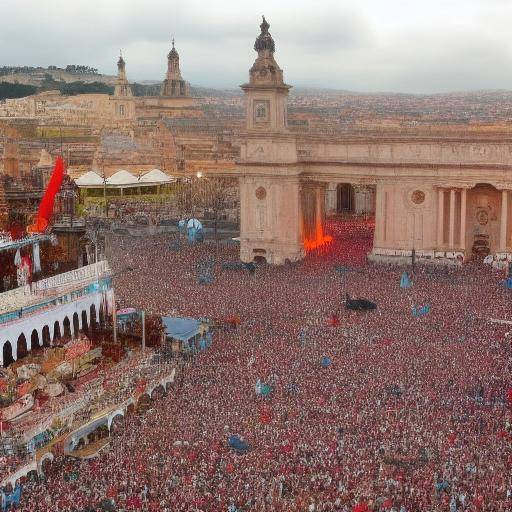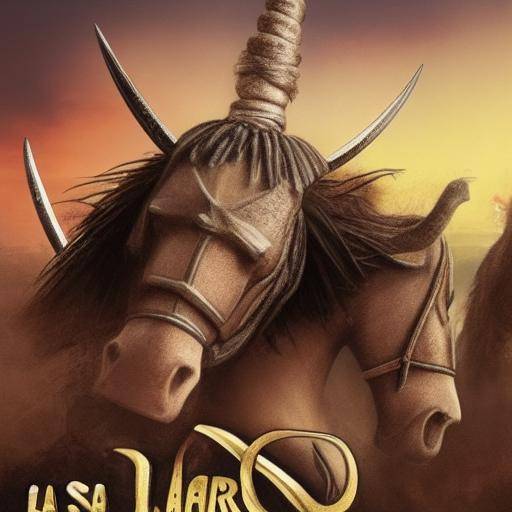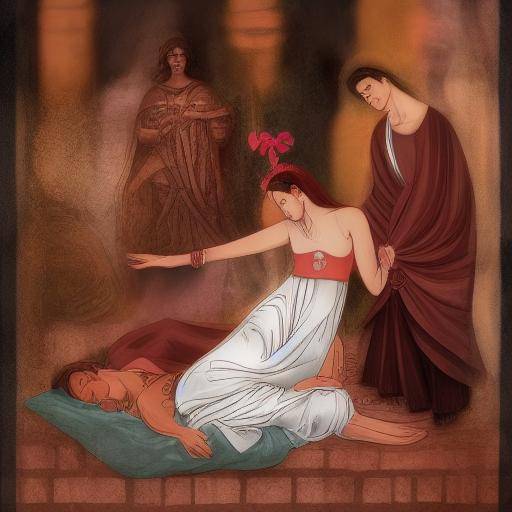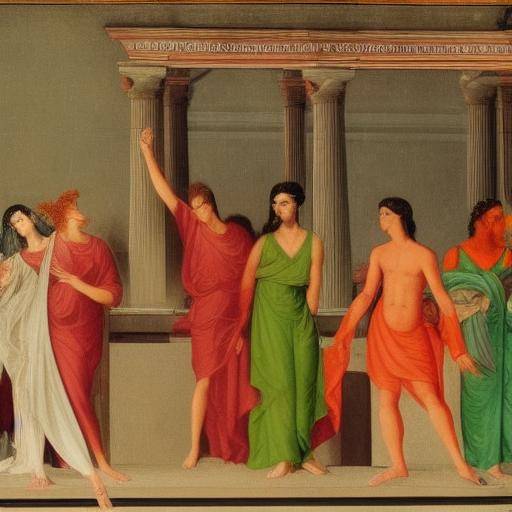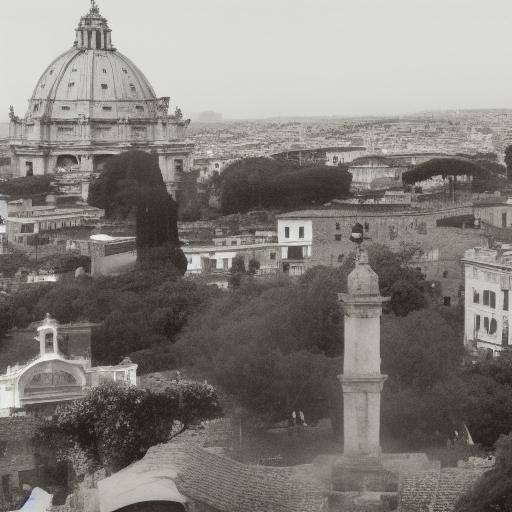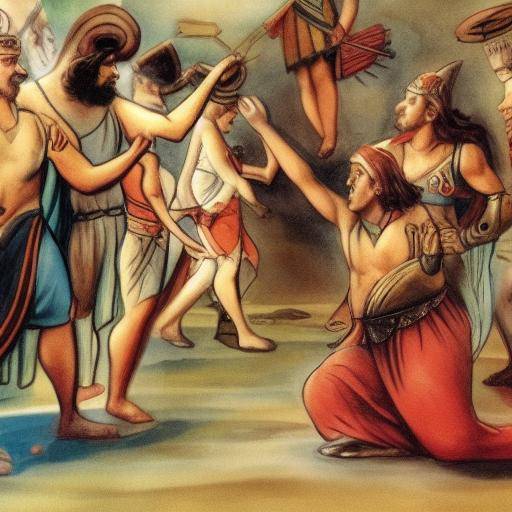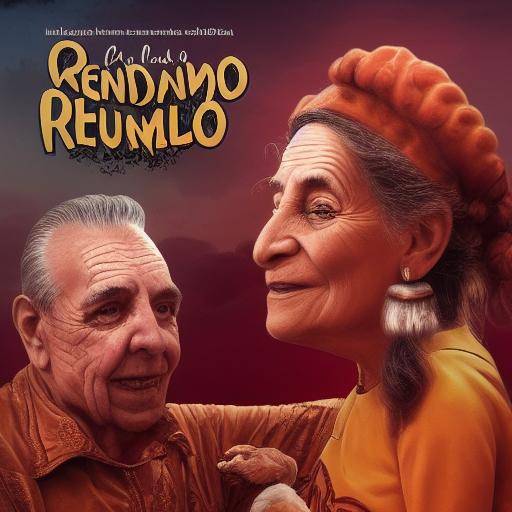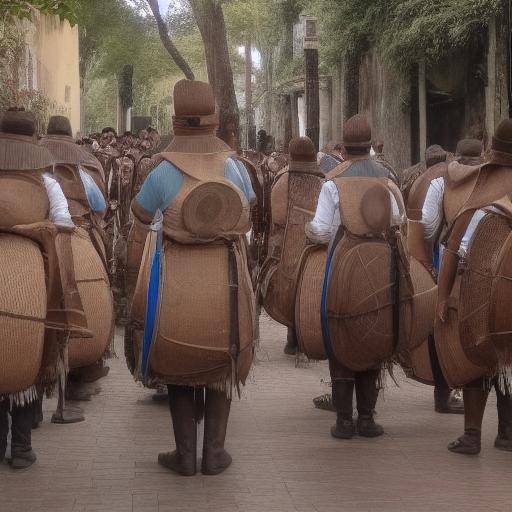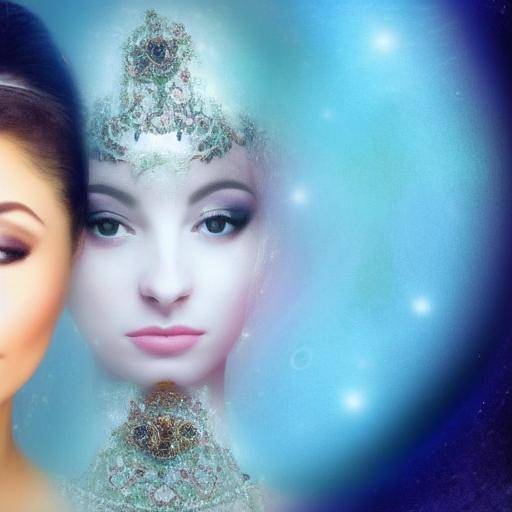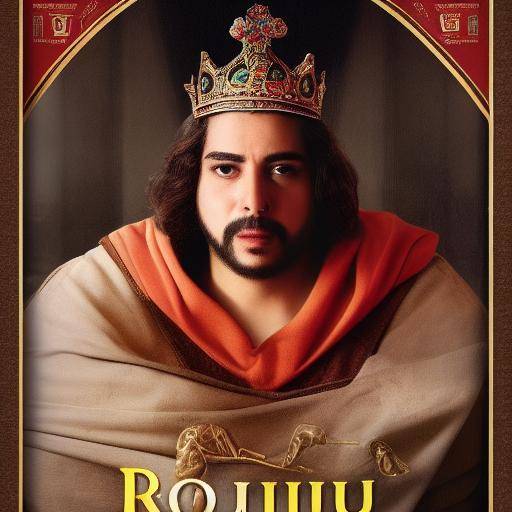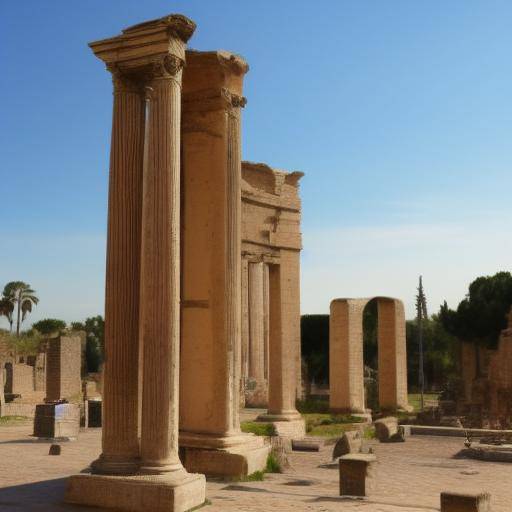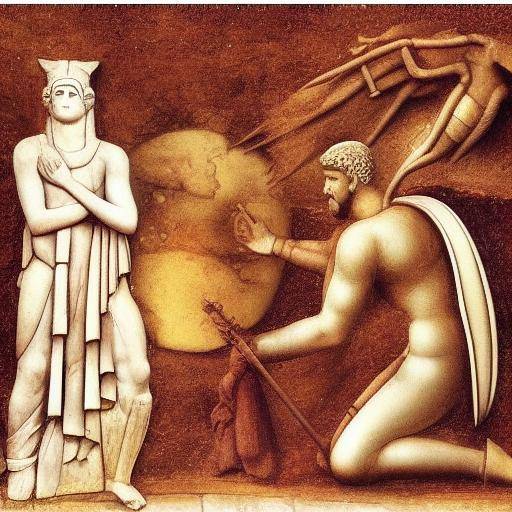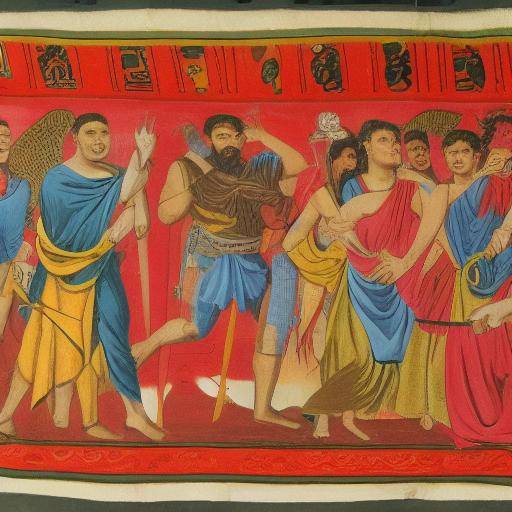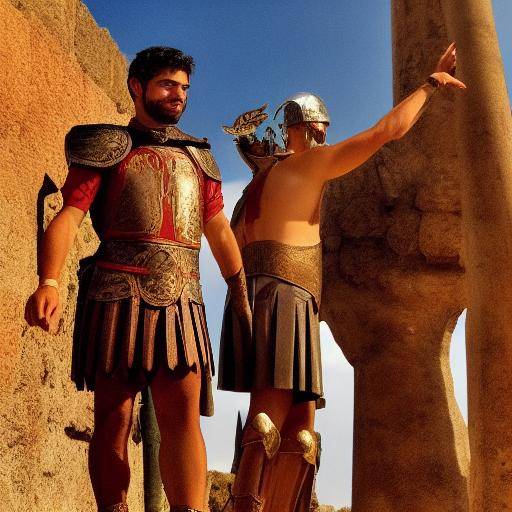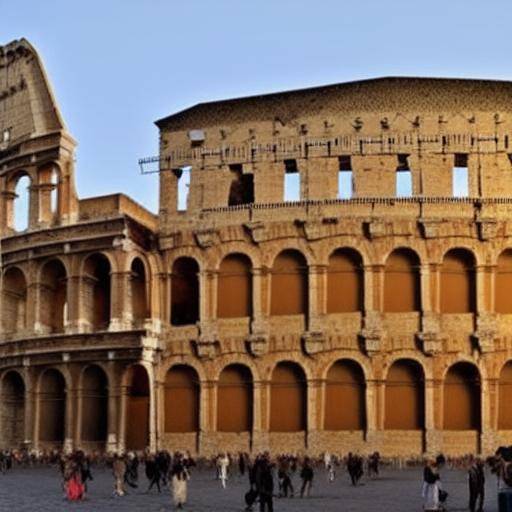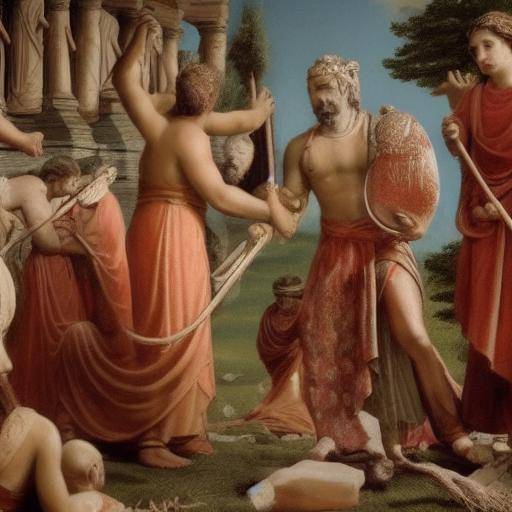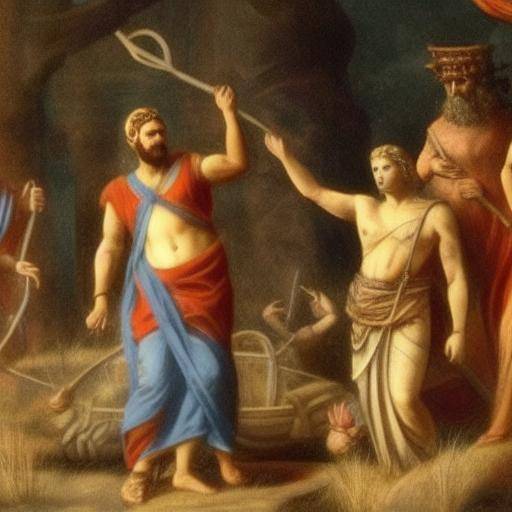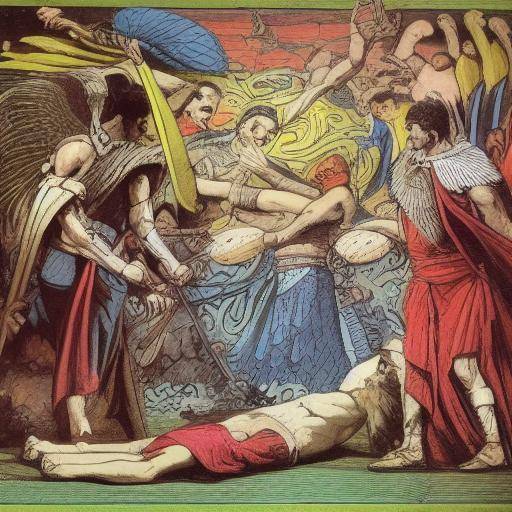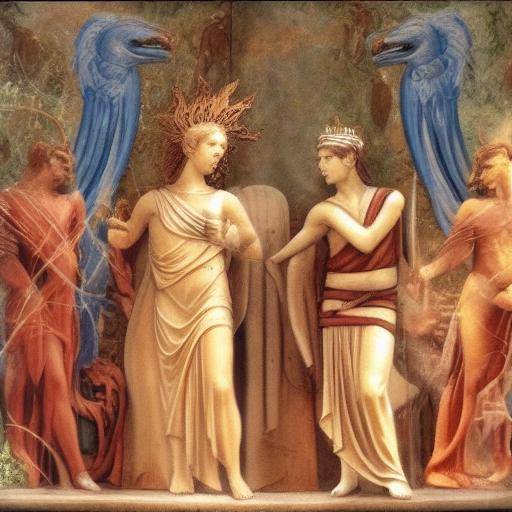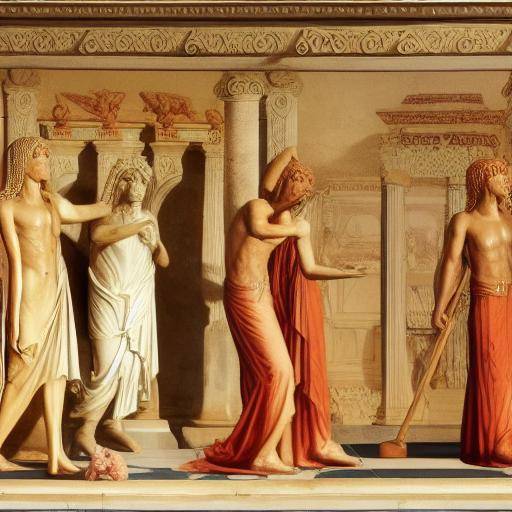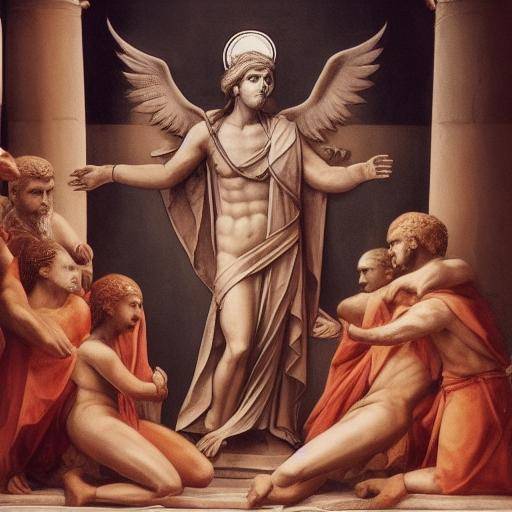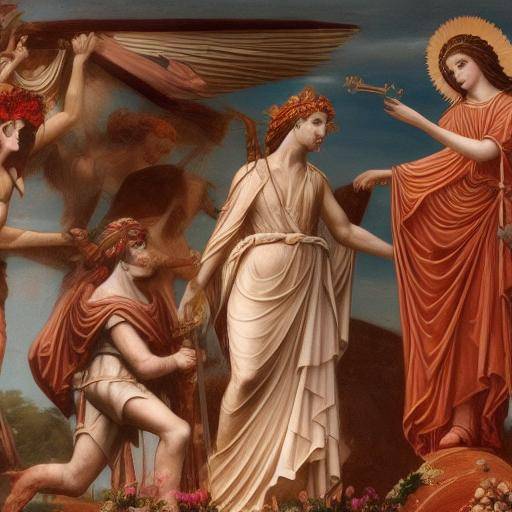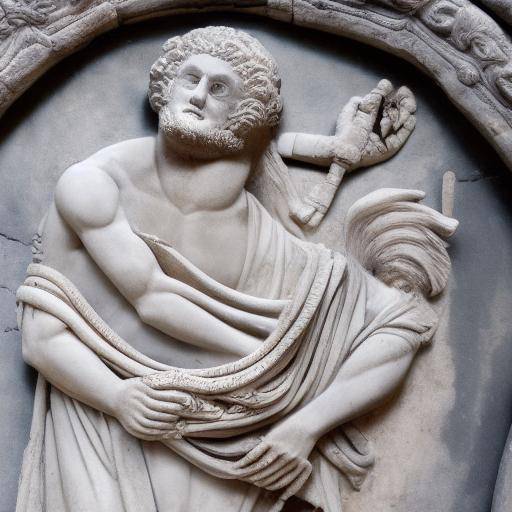
Roman mythology is a fascinating set of beliefs, stories and divinities that have left a significant mark on Western culture. Although greatly influenced by Greek mythology, Roman mythology also has its own distinctive peculiarities and characters. In this article, we will explore in detail the Roman mythology, the Greek influences that shaped it and its historical relevance and impact.
Introduction
Roman mythology, like its Greek counterpart, is a reflection of the beliefs, values and traditions of ancient Roman civilization. With its tales of powerful gods, brave heroes and mythical creatures, Roman mythology offers a unique window to understand the worldview and mentality of ancient Rome. In this article, we will immerse ourselves in the fascinating world of Roman mythology, exploring its origins, its connections to Greek mythology and its importance in history and culture.
History and Background
Roman mythology has its roots in the religious and mythical traditions of the ancient Italic and Etruscan cultures, which were intertwined with the Greek influences over the centuries. By absorbing elements of Greek mythology, the Romans adapted and reinterpreted many of the Greek stories and deities to reflect their own cultural worldview and values. Thus, while Greek mythology provided the general framework, Roman mythology developed uniquely, incorporating figures such as Jupiter, Neptune, Mars, Venus and Minerva.
In parallel to its rich mythology, ancient Rome evolved from a monarchical state to a republic and finally an empire, with mythology playing a fundamental role in legitimizing power and social cohesion. As Rome expanded, its mythology was amalgamated with the beliefs of the conquered regions, enriching itself with new stories and divinities. Roman mythology not only served as a religious framework, but also perpetuated everyday life, art, literature and Roman politics.
Analysis in Deep
Roman mythology reflects the values, ideals and virtues that Roman society considered worthy of emulation. Through his accounts, mythology promoted obedience, courage, filial piety and other desirable attributes, while conveying moral lessons and concepts about destiny and human nature. However, the influence of Greek mythology was also evident in areas such as literature, art and philosophy, with figures such as Homer and Hesiod exerting a lasting influence on the Roman mind.
In analyzing Roman mythology from a contemporary perspective, it is evident that it has its footprint in fields as diverse as architecture, linguistics, music and politics. Although Roman mythology has lost its religious function, its legacy persists in popular culture, classical literature, linguistics and performing arts, providing a rich arsenal of metaphors, characters and accounts that remain relevant in the 21st century.
Exhaustive examination
The interconnection between Roman and Greek mythology reveals intriguing parallels and significant divergence points. While some of the Roman divinities are direct equivalents of their Greek counterparts, others have substantial differences in their attributes and roles. These differences offer a deeper understanding of both Roman and Greek cultures and their respective conceptions of the divine and human world. In addition, studying the mutual influences between the two mythologies shed light on the cultural transmission and the process of religious syncretism that characterized the ancient world.
Final Reflections and Frequently Asked Questions
In conclusion, Roman mythology, shaped by Greek influences, represents an invaluable cultural legacy that traces the evolution of one of the most influential civilizations in history. Its impact on the perception of the world, morality, art and politics has been lasting and remains the subject of study and inspiration today. As we explore the magic and grandeur of Roman mythology, let us always remember that these ancient stories reflect the longings, fears and aspirations of a society that has left an indelible mark on the history of humanity.
Frequently asked questions:
**1. What is the main difference between Roman and Greek mythology?**The main difference lies in their gods and goddess, as well as in the stories and myths associated with them. While both mythologies share some similarities, they also present significant differences in the names and roles of their divinities.
**2. What was the most significant influence of Roman mythology in history?**In terms of historical influence, Roman mythology played a fundamental role in justifying and legitimizing imperial power, as well as in social cohesion and Roman identity.
**3. How have Roman myths and legends survived to the present day?**Roman myths and legends have endured throughout the centuries through their representations in literature, art, music and theatre, remaining an inexhaustible source of inspiration and reflection.
**4. What is the cultural legacy of Roman mythology today?**The cultural legacy of Roman mythology is manifested in the influence it has exercised in art, literature, language and social structure, providing a rich heritage of metaphors, symbols and characters that remain relevant in contemporary culture.
**5. What is the importance of understanding Roman mythology today?**Understanding Roman mythology not only enriches our knowledge of ancient history and Roman culture, but also gives us a perspective on human nature, mythological creativity and the transcendence of symbolic accounts in society.
**6. What is the relationship between Roman mythology and Greek mythology?**The relationship between Roman mythology and Greek mythology is of mutual influence, where similarities, adaptations and reinterpretations of Greek divinities and myths are observed in the Roman context, demonstrating a dynamic process of religious exchange and syncretism.
In short, Roman mythology and its Greek influences offer a fascinating lens to contemplate the ancient world, as well as a rich source of inspiration and reflection today. Its shocking legacy not only illuminates the history of ancient Rome, but also perpetuates its influence on global culture until today. The understanding of these mythical accounts connects us with the roots of our civilization and invites us to contemplate the immortality of the stories that continue to resonate over time.

